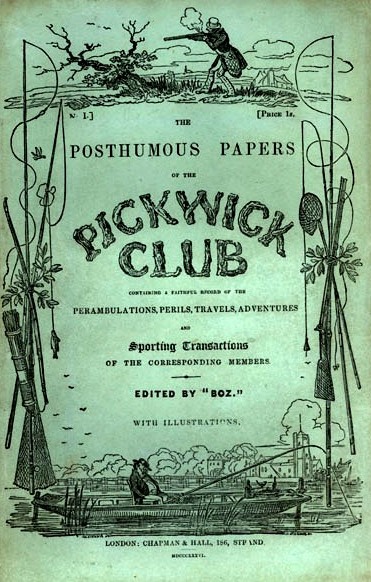Trawling through the court reports of the 19th century can be both intriguing and depressing. You come upon all manner of stories that show humankind at their best, worst, and most eccentric.
I recently found a little story – which appeared in The True Sun on Tuesday, 30th August 1836 – which, I have to confess, did raise a glimmer of a smile.
WRITTEN BY CHARLES DICKENS?
As I read the account of the court appearance of Dr. Arthur Balany at Marlborough Street Police Court, I began to wonder if the author of the piece might not have been Charles Dickens.
Dickens at the time was working on Pickwick Papers, and, following the death of its original illustrator, Robert Seymour, had taken full control over the work.
But, at this time, he was still following his original calling as a journalist; and if you compare the literary style of the article, it certainly has decidedly Dickensian overtones about it.
Indeed, the way in which the article is written, it could almost have been lifted from the pages of Pickwick Papers.

WISH YOU WERE THERE
Whether it was written by Dickens or not, the article certainly makes a refreshing read, and you can’t help but wish yourself into that long-ago courtroom to witness the exchange between Dr. Balany and the unimpressed magistrate!
A DRUNKEN DOCTOR
Dr. Arthur Balany, a dirty little fellow with a wry neck, and more famed for an acquaintance with the joys of Bacchus than his knowledge of the mysteries of Aesculapius, was placed at the bar, charged with being drunk and incapable of taking care of himself.
The doctor’s cranium appeared exceedingly swollen, and more gouts of blood were visible on his forehead than ever were seen on Macbeth’s air-drawn dagger.
HIS EXPLANATION
The worshipper of medical science did not wait to be interrogated by the magistrate, but at once poured forth his unpremeditated exculpation.
“Please your worship,” he commenced, “here I am again, cruelly treated. Like Sampson have I been bound with ropes; but unlike him, I have been retained in bondage – my clothes have been stripped from my back, and the apparel which now covers my members is shameful to behold.
One could scarcely suppose that it had ever “seen the light of other days.”
Five and twenty suits of clothes and four great coats have I mounted since the King’s coronation, and not one article has endured its natural time.
STEADY AS A JUDGE
They say I was drunk; but, please your Worship, that cannot be, for I can drink a bottle of Irish whisky, and afterwards stand as steady as a judge, on one leg.
Besides, I always take an antidote. It was the custom of Mithridates, King of Pontos, and I am not above adopting a useful practice.
Take one of those balls, (taking a large white one from a piece of brown paper,) and dissolve it in a pint of rum, drink the solution, and my word for it, your character for sobriety will not suffer at the end of the evening.”
A MISTAKE, INDEED!
“I have not time,” said the magistrate, “to attend to all your nostrums.”
“Nostrum!”, repeated the man of art; “that’s a mistake. It is a composition of immense value, of which pure unadulterated nitre forms the chief part.”
“But you were drunk, doctor; and must pay a fine of five shillings.”
NO KICKING IN THIS COURT
“‘Pon my veracity, your worship, if you were to kick me from Dublin to Ballybriggen, you could not knock five shillings out of me.”
The magistrate did not seem inclined to try the experiment, and the learned doctor was locked up.
